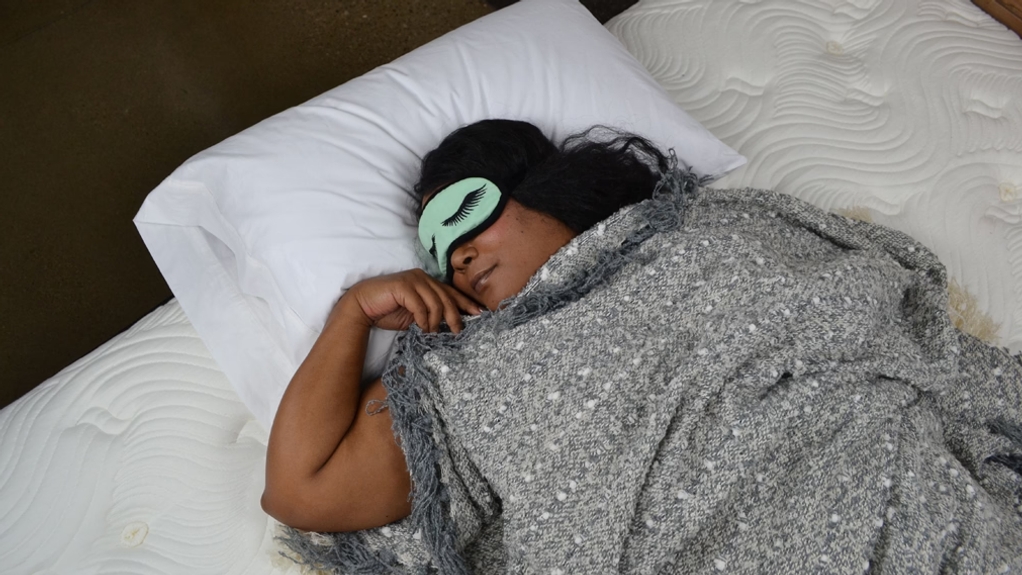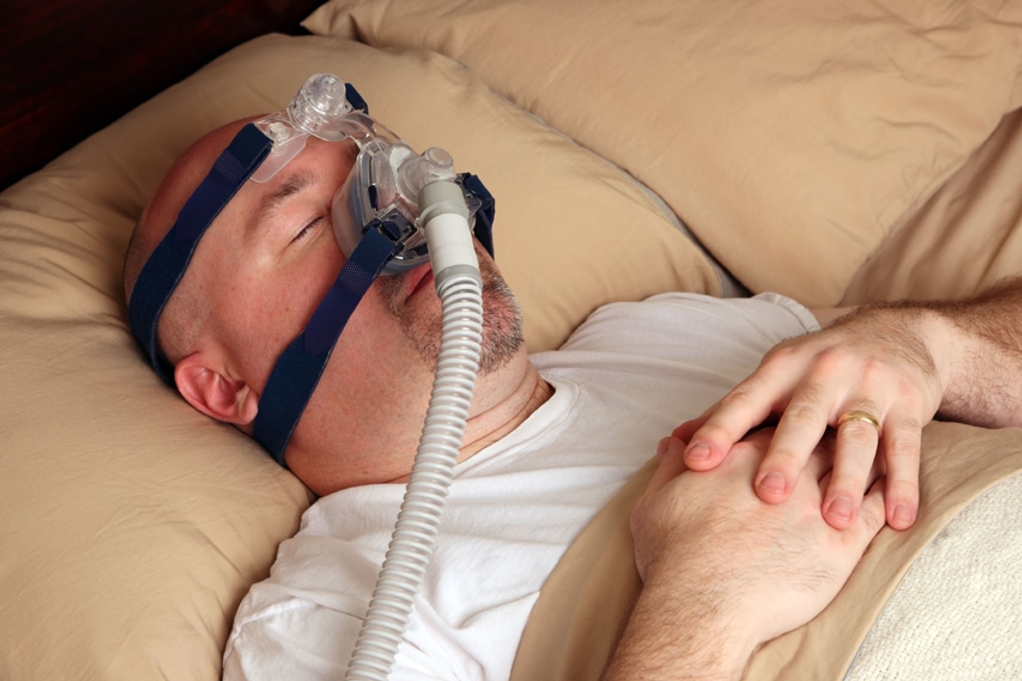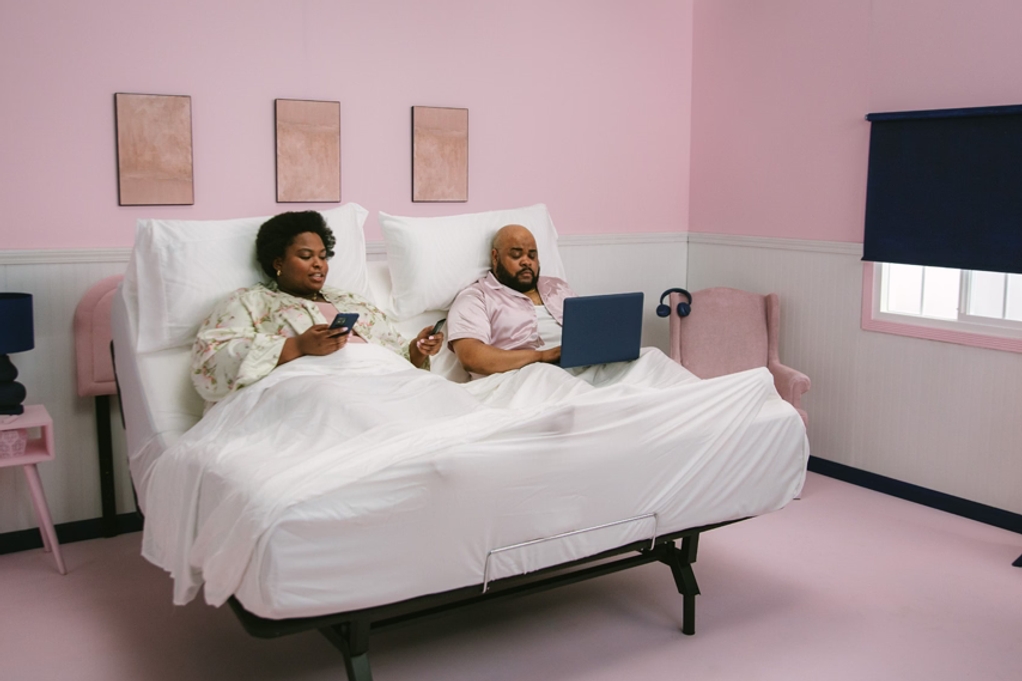To most of us, the thought of getting “too much sleep” sounds like a fantasy. Sleep is good for you -- how could you possibly get too much of it?
Well, as it turns out, the amount of shut-eye you clock in is actually a really great example of what can happen when you get too much of a good thing (that good thing being glorious sleep). In the same way that it’s possible to drink too much H2O or take one too many vitamins, it’s possible to get more sleep than is healthy.
Now, we aren’t talking about hitting the beloved snooze button on the occasional Saturday or Sunday, but about chronic oversleep that happens nearly every single day.
Of course, sleep is a pretty tricky topic. If you’re getting too much, it can be a case of the chicken-and-the-egg question: is too much shut-eye causing you to be unhealthy, or is your fatigue and exhaustion simply a symptom of an underlying medical condition?
If you’re noticing that you’re suddenly super sleepy all the time, it might be the latter, and it’s probably a good idea to check in with your doc. However, if you have always slept a lot, it might be a sign that you’re a chronic “oversleeper,” and believe it or not -- you’re doing harm to your health in the long run.
Interested in learning more? We’ve got your back! Read on to learn everything you need to know about oversleeping.
But First, Why Do We Need Sleep Anyway?
The best way to think about sleep is to think of it as an essential nutrient, like vitamin D or iron. You need a certain amount of shut-eye to keep your body and brain moving and working properly.
To this day, the actual science behind sleep is still not very well understood -- but the basic idea is that it provides your body with time to rest, and it gives your noggin an opportunity to process through all of your day’s experiences.
While you’re drifting off to sleep and dreaming, your brain has time to make connections and sort through what it should keep and what it should toss out. That said, short-term and long-term memory really depend on a good night’s rest.
Ok, So How Much Sleep Should I Be Getting?
Ah, good question! Every single person requires a different amount of sleep -- and it can change and grow depending on your age, your health, your daily activities, and your body chemistry. For instance, a teen going through adolescence might need ten solid hours a night, while a middle-aged adult might be fine with just six.
In general, experts agree that most people should clock in seven to nine hours of restful sleep a night. If you’re an adult and you regularly get ten or more hours a night (and you’re not fighting a virus or have a bun in the oven), you’re probably getting too much sleep.
What’s the issue with getting too much sleep, you ask?
Well, in some cases, it can be a symptom of a sleep disorder called hypersomnia. No matter what the case may be, it can hurt your health in a lot of surprising ways.
What Are The Risks Of Oversleeping?
Here at Big Fig, we’re lovers of all things sleep. Why? Because we make one heck of a mattress, and sleeping on it is arguably our most favorite thing to do-- that’s why! The Big Fig Mattress is made with L A Y E R S of quality foam, so you’ll never want to leave. Sorry, not sorry. That being said, the only issue that you may experience is oversleeping because, well, it’s just so darn comfy!
While oversleeping from time to time is perfectly okay (and your Big Fig is definitely going to be hard to leave in the morning), chronic oversleeping is not okay. Here are some of the top negative effects of sleeping too much:
1. Headaches
Did you know that sleeping too much can trigger painful headaches and migraines? Yup, it’s true -- this phenomenon, known as “weekend headache,” is believed to be caused by a disruption in levels of key neurotransmitters -- such as serotonin (the happy hormone). Likewise, napping so much during the day that it makes it tough to get a good night’s rest has also been associated with morning headaches. It’s like Josh Peck screaming at his pillow so much so that it gives him HEADACHES.
2. Back Pain
If you’re one of the millions of people who suffer from back pain, sleeping too long can exacerbate your symptoms. Lying down for extended periods of time -- especially in a not-so-great position or on a lumpy, frumpy old mattress -- causes muscle stiffness and increases pain. Experts recommended that people with back pain stay active and sleep no more than the recommended seven to nine hours.
It also might be wise to break up with your old mattress and start a new fling with a Big Fig… just saying (wink, wink).
3. Inflammation
Oversleeping can also trigger your body to produce extra cortisol (the stress hormone). In low doses, cortisol is an essential part of your immune system and can help lower inflammation. However, this cheeky hormone tends to build up in the blood when the body is super stressed or sleepy—oversleeping triggers the body to produce extra cortisol.
In higher doses, cortisol stops its anti-inflammatory magic and actually has the opposite effect -- you’re much more likely to wake up feeling puffy-eyed and sore because of inflammation in your joints and sinuses.
4. Brain Fog
Have you ever slept in on a Saturday or Sunday and then discovered that you actually felt extra sleepy all day -- despite getting plenty of quality shut-eye?
This common symptom isn’t just in your head as it might be linked to much more serious and permanent conditions in the future. A recent study found that individuals who regularly sleep ten or more hours have a heightened risk for developing Alzheimer’s and dementia earlier than their peers. It’s kinda scary when you really think about it!
For the moment, it’s not crystal-clear why this is the case, but longer sleep patterns are definitely linked to more rapid mental deterioration.
5. Infertility
Here’s another scary thought -- the amount of shut-eye you get at night might be directly linked to your fertility. This is obvi less important for anyone past menopause, but younger ladies trying to put a bun in the oven should try to get seven to nine hours of quality sleep a night.
The theory behind this is that too much sleep causes your circadian rhythm to go out of whack. That, in turn, disrupts your monthly visits from Auntie Flo, meaning that ovulation and periods become irregular and disrupted -- and it’s harder to get pregnant.
Bottom Line
So, is too much sleep harmful, you ask?
While hitting the snooze button and sleeping in from time to time is perfectly normal (and healthy), chronic oversleeping is not healthy. So yes, too much sleep is indeed harmful.
If you’re clocking in over ten hours of sleep each night, it might be time to reevaluate your lifestyle to figure out why you’re sleeping so much. While there are many things that could be causing you to sleep in excess, chances are you could just be sleeping on an old mattress which is disrupting your sleep quality, forcing you to overcompensate by sleeping more.
Break the cycle and get a new mattress -- like the Big Fig.
With our innovative mattress designed for bigger figures, you’ll finally be able to get the rest you deserve to help get your sleep cycle back on track -- and we love that journey for you!
Sources:
Take responsibility for your well-being and master your life | Living Intentionally
Hypersomnia Information Page | National Institute of Neurological Disorders and Stroke




